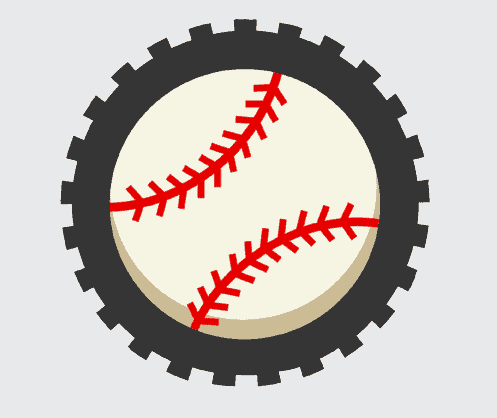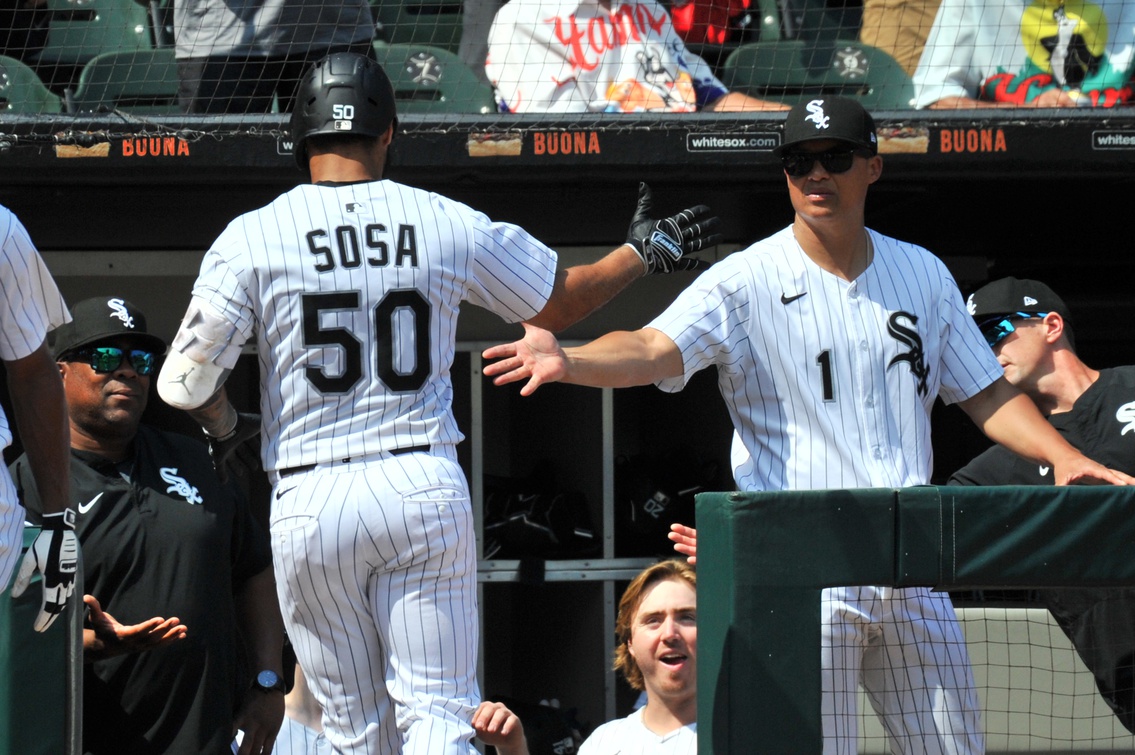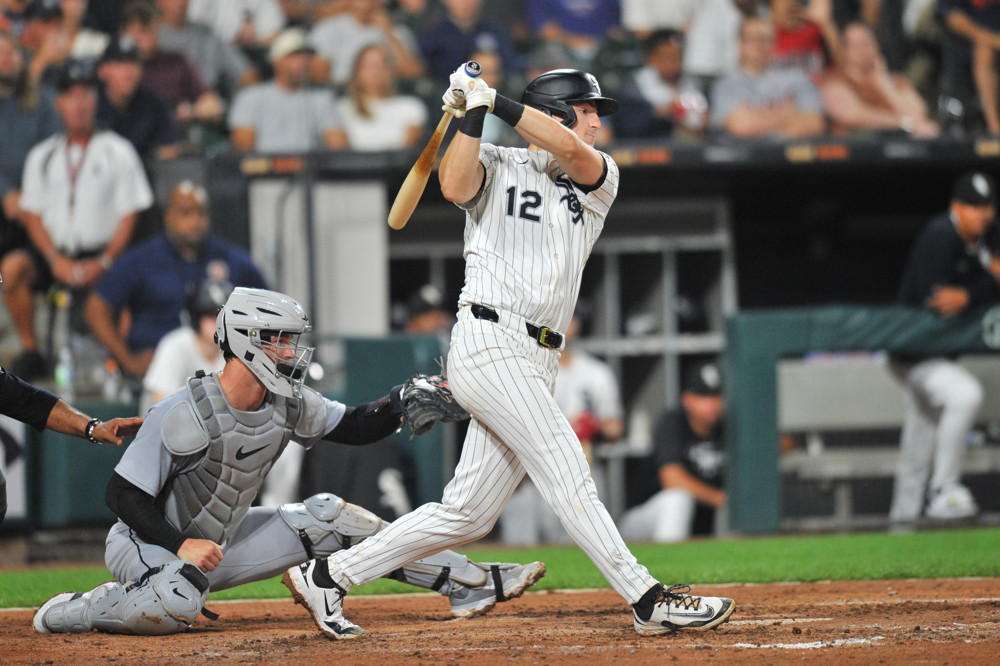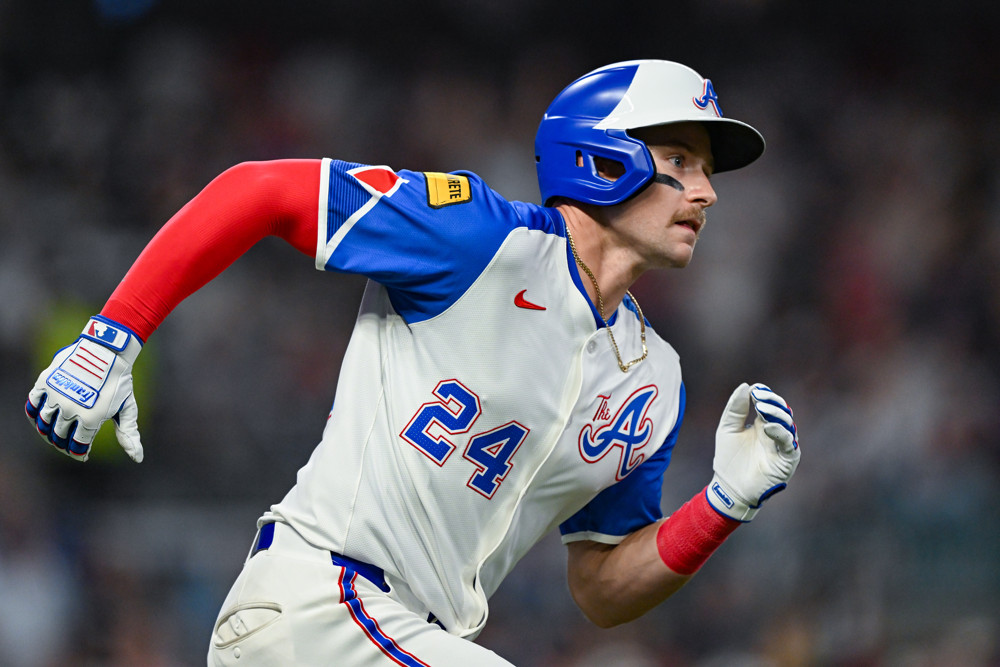I've never taken to John Smoltz's post-career career as a prominent voice, mostly because he spends a lot of his time complaining. I suppose I grew used to such broadcast booths from the last decade of Hawk Harrelson, but a national analyst has 29 other teams to choose from if one is disappointing him on a personal level.
When seeing all his complaints and solutions distilled into one Bob Nightengale column, he reminds me of a Sam Zell type. He brings a bunch of revolutionary ideas, some better than others, but he wouldn't have the patience to see even the good ones through, and then he'd exit with a golden parachute and no real reflection.
At any rate, his big idea among a bunch of gripes is a split season for the majors. First-half champs, second-half champs, with a bye for teams who won both:
“I know change is coming, it has to come,’’ Smoltz tells USA TODAY Sports, “I just don’t know when. But we better hurry.’’
Smoltz wants to eliminate the shift (“I think it’s single-handedly killing the game), curtail the relentless use of relievers, stop the exploitation of the disabled list, but most of all, revolutionize the schedule.
Smoltz proposes that MLB adopt a split-season schedule, just as they do in the minor leagues, in a move that he believes will create dramatic division races again, reduce the number of teams tanking for draft picks, and make baseball great again in September.
The shift parenthetical sums up my issue with Smoltz. If the shift was "single-handedly killing the game," then the list would end right there, wouldn't it? And it isn't, but giving the game some time to evolve and counteract shifts doesn't scratch that itch. He presents his ideas as game-saving rather than game-improving. Why? I dunno. Why does baseball content to have one of its loudest voices sounding so miserable about his sport? I dunno.
It's the same thing with framing this year's American League as an issue. Sure, the AL Central is a sinkhole, but the rest of the playoff picture seems like a commissioner's dream: The Red Sox are going for super-team status with the Yankees trying to check them, the Astros attempting a dynasty in the fourth-largest city, and the Oakland A's and Tampa Bay Rays coming through with inventive small-market success. The National League is doing fine with September excitement, and it's far from the first time in baseball history one league had all the fun.
Besides, last year's problem was a lack of good teams, which allowed a mediocre Twins team to take the second wild card spot. This year's problem is there are too many good teams, which relegates a mediocre Twins team to a year-long also-ran. If Minnesota were better, the league would have one pennant race and all complaints would be warded off. I'm content to blame the Twins for everything that's wrong with baseball and move along.
If I can isolate Smoltz from his relentless griping, the split-season idea isn't a bad one on its face, because it gets to the heart of the tanking issue. Teams aren't so reliant on attendance and interest as they used to be. Between the national TV deal, the streaming deal and revenue sharing, teams make plenty of money before a single fan sets foot inside a ballpark. Owners don't have to try as hard to field a winner, and Buster Olney has made the point that rebuilding favors owners because they're excused from improving the product with their wallets for years.
By opening the postseason up to small-sample randomness, it gives management fewer excuses to lie dormant. There are trade-offs, chiefly opening up the World Series to terrible teams who had one hot half. It's already weird when a wild card team wins it all, and those teams had to be respectable when October arrived. The Great Falls Voyagers won the Pioneer League with a below-.500 record. It's acceptable in the minors because it rewards minor-league teams that pushed their players up the ladder. In the majors, players have nowhere to go but down.
But I can see the appeal of two white-knuckle periods instead of one, and potentially two trade deadlines instead of one, that could generate enough excitement on a regular basis to offset the overall diminished importance of the regular season. I don't mind having that solution in the back pocket in the event baseball truly faces an existential threat. Hell, maybe it'll arrive in 2021 organically if the league can't agree on a CBA. Jeff Katz can tell you all about it.
I'm just loath to suggest changes after a season with extreme outcomes, because the problem that an overhaul aims to fix may no longer exist by the time it's implemented. It'd be a godsend for teams like the White Sox and Mariners, who are fundamentally unable to build a team that can last 162 games, but I'd rather see the Sox conquer their issues than let the league meet them halfway.






